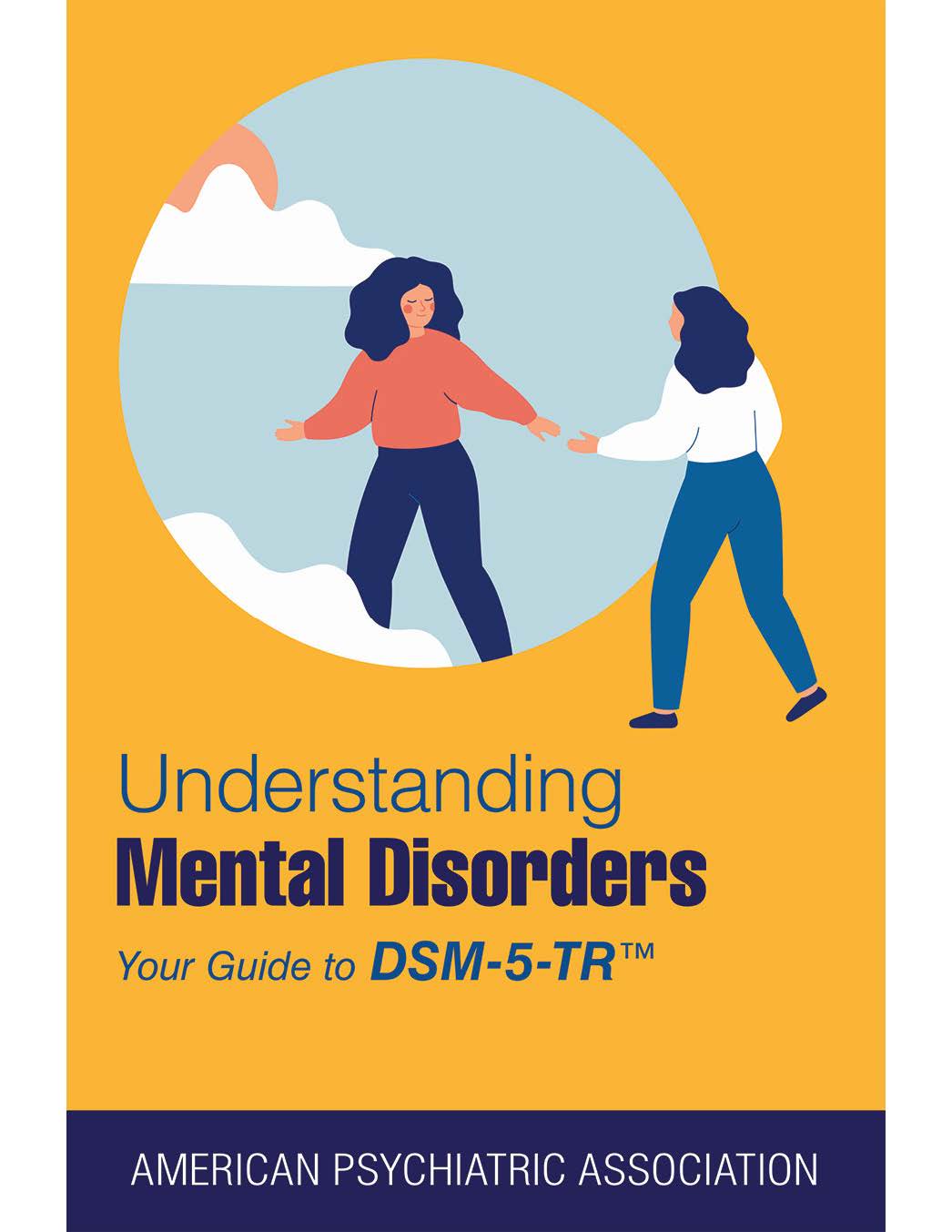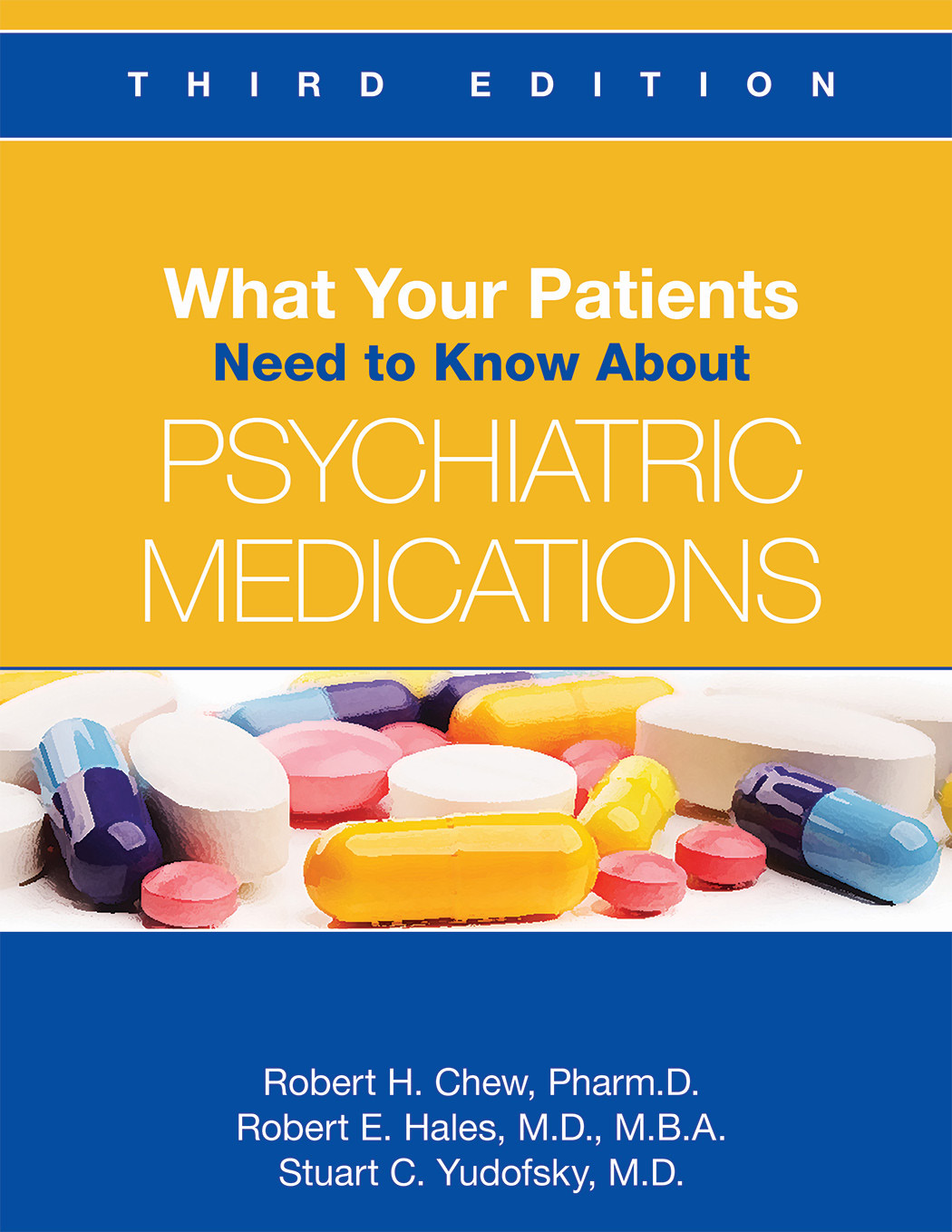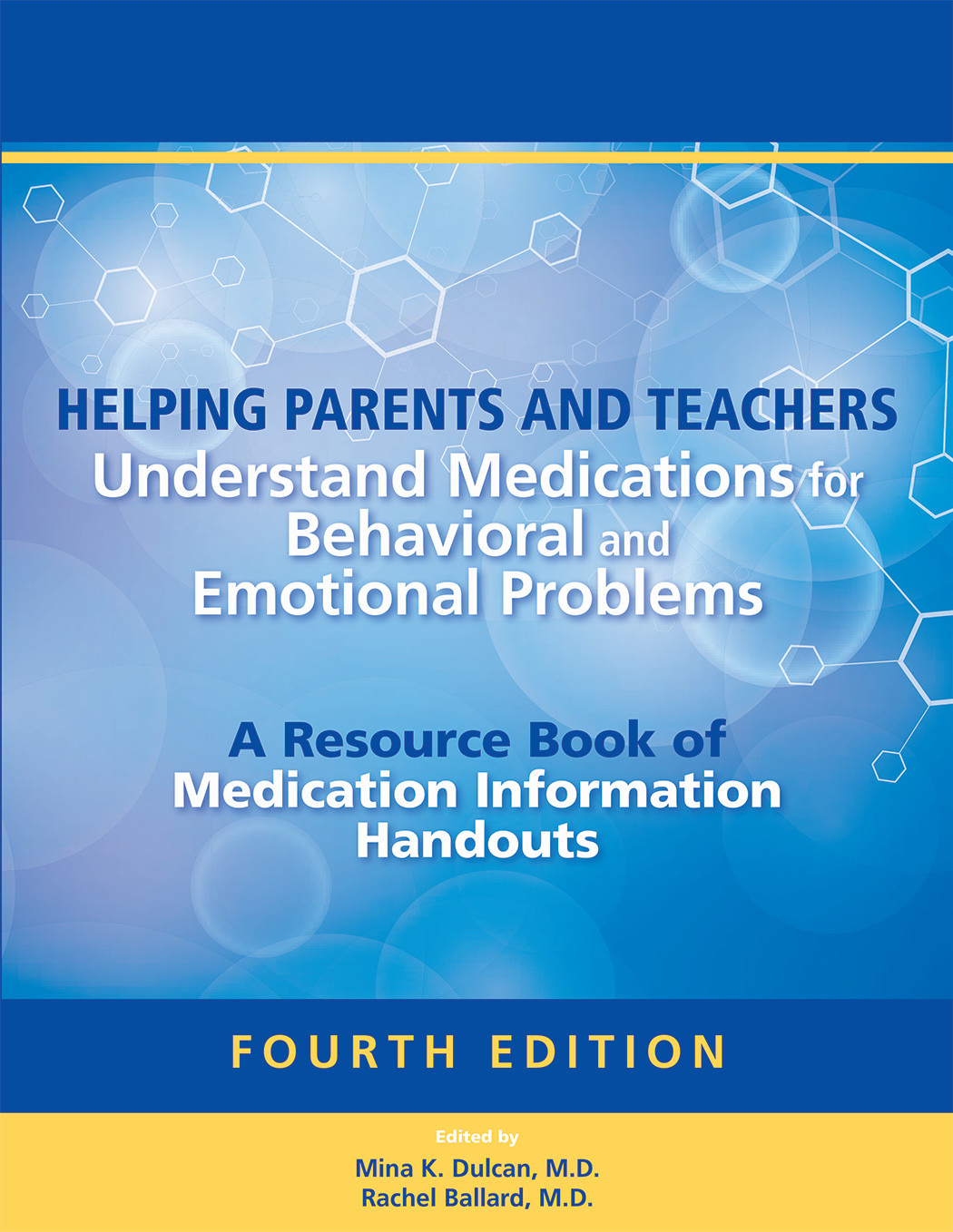Patients & Families
Learn about common mental disorders, including symptoms, risk factors and treatment options. Find answers to your questions written by leading psychiatrists, stories from people living with mental illness and links to additional resources.
Understanding Mental Disorders: Your Guide to DSM-5-TR®
Most of us know someone who suffers from a mental illness. This book helps those who may be struggling with mental health problems, as well as those who love and care for them.
Based on the latest edition of the Diagnostic and Statistical Manual of Mental Disorders—known as DSM-5-TR—Understanding Mental Disorders provides useful insight on what to expect from an illness and its treatment—and will help readers recognize symptoms, know when to seek help, and get the right care. Featured disorders include depression, schizophrenia, ADHD, autism spectrum disorder, posttraumatic stress disorder, and bipolar disorder, among others.
The common language for diagnosing mental illness used in DSM-5-TR® for mental health professionals has been adapted into clear, concise descriptions of disorders for nonexperts.
What Your Patients Need to Know About Psychiatric Medications, Third Edition
With its quick-reference format, What Your Patients Need to Know About Psychiatric Medications, Third Edition, is not just an invaluable resource for clinical social workers, clinical psychiatrists, psychiatric nurses and residents, and community and psychiatric pharmacists. It is also a source of accessible, jargon-free guidance for patients, who can leave the physician’s office with tangible material about their specific medication, which they can retain and refer to later.
Helping Parents and Teachers Understand Medications for Behavioral and Emotional Problems, Fourth Edition
The book is arranged alphabetically, and each medication has its own information sheet that can be photocopied or downloaded and printed by psychiatrists, pediatricians, and neurologists for distribution to parents and teachers. A useful resource for school staff and library patrons, the information sheets will also be helpful to nonprescribing mental health professionals talking with families about possible referral for medication.


